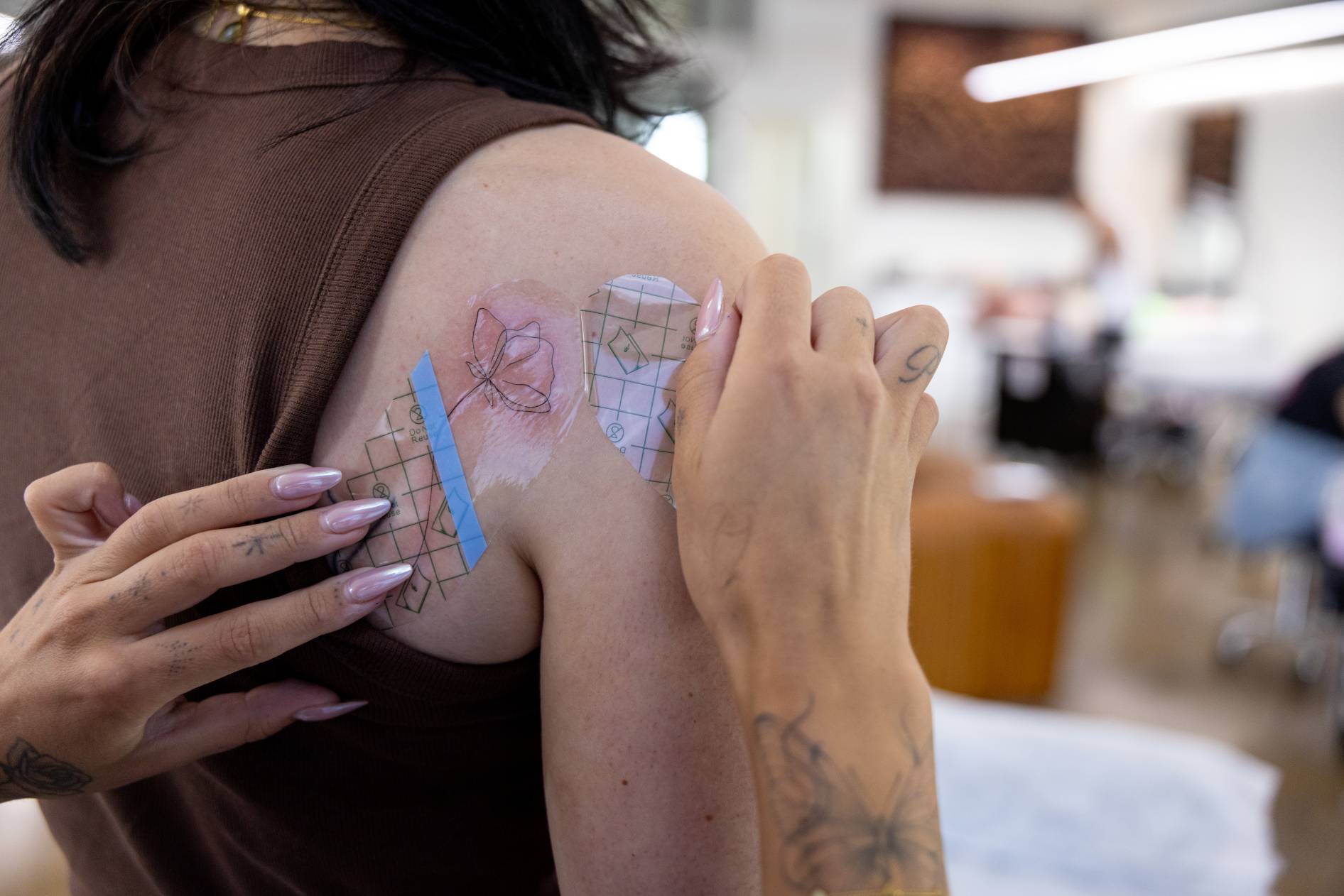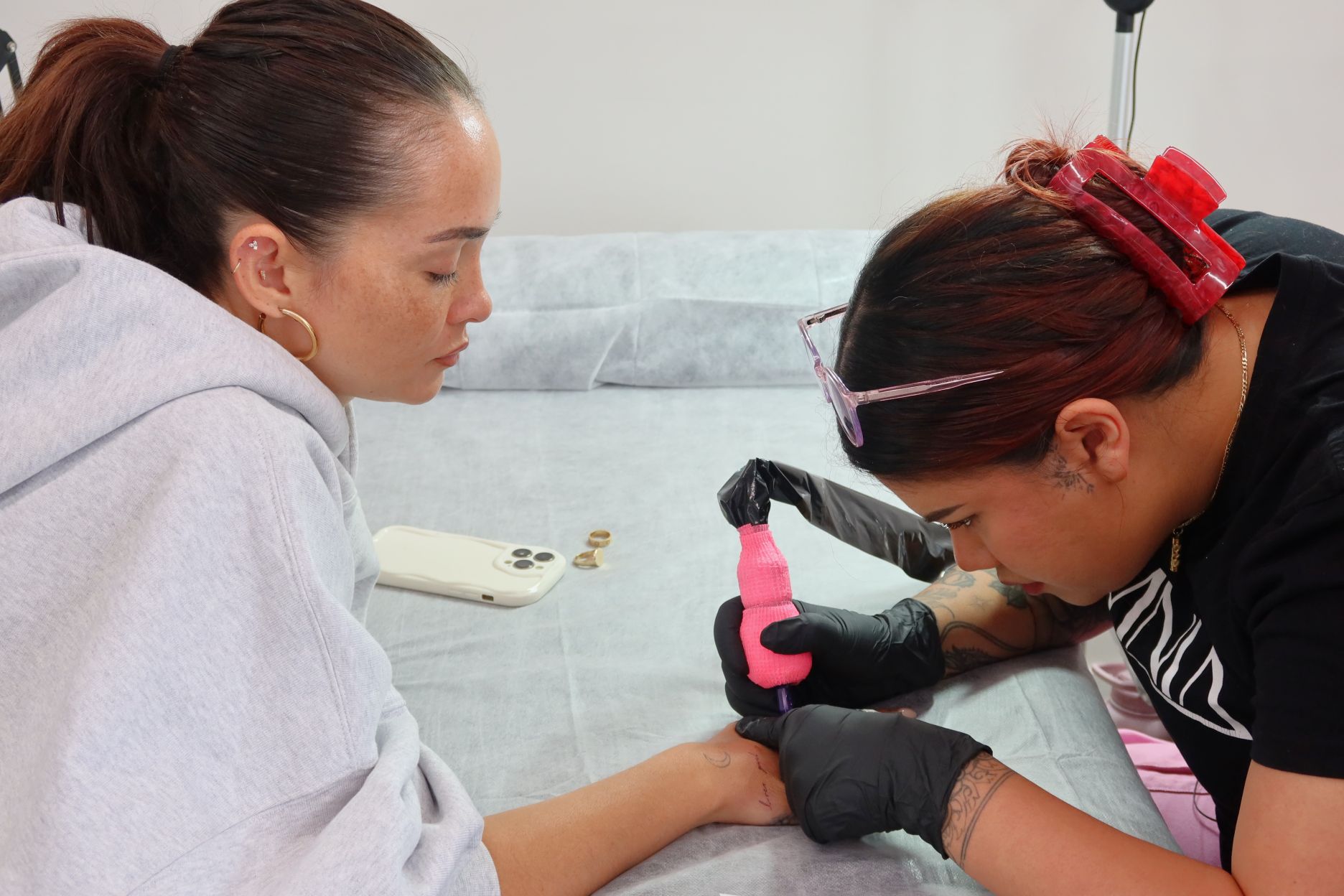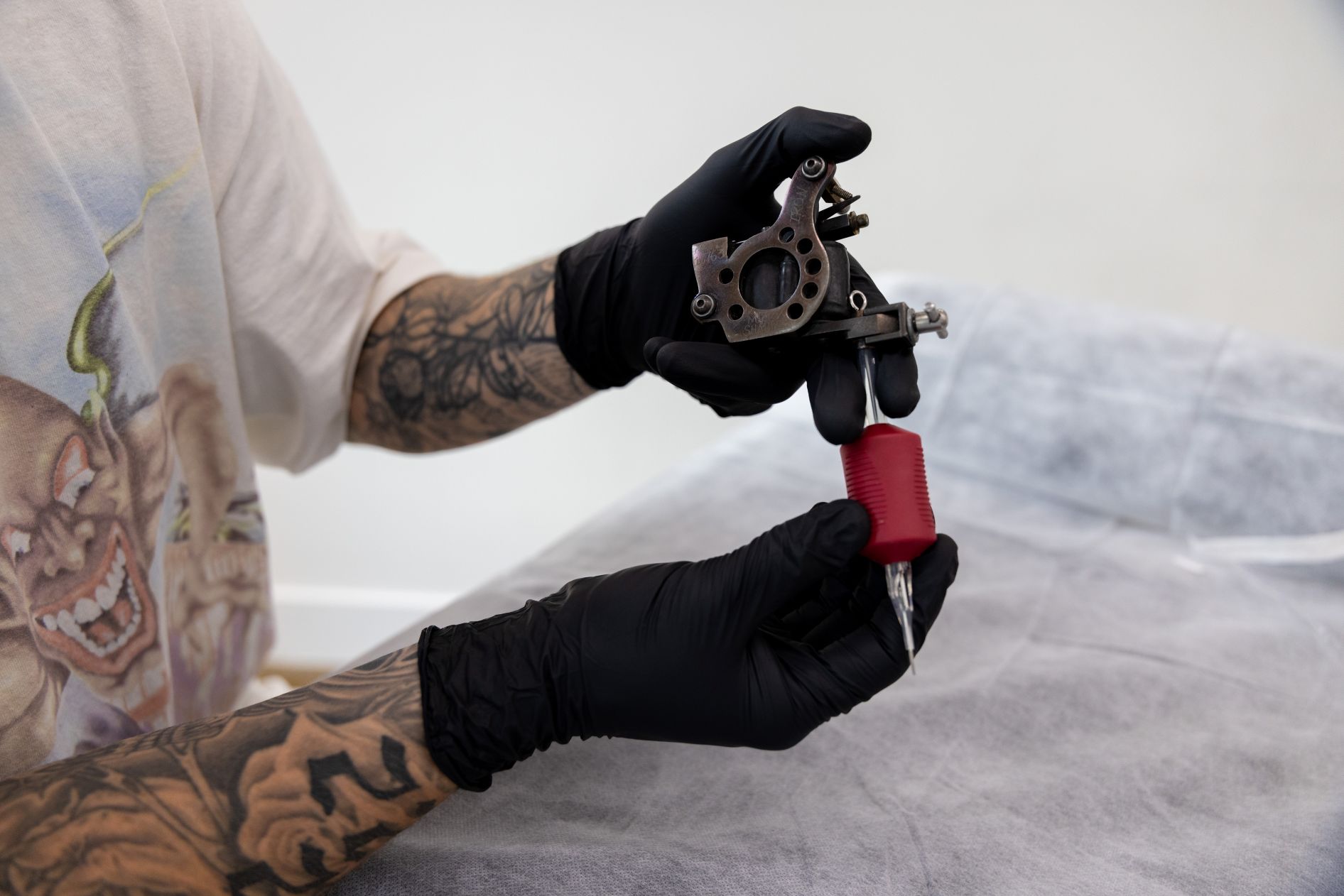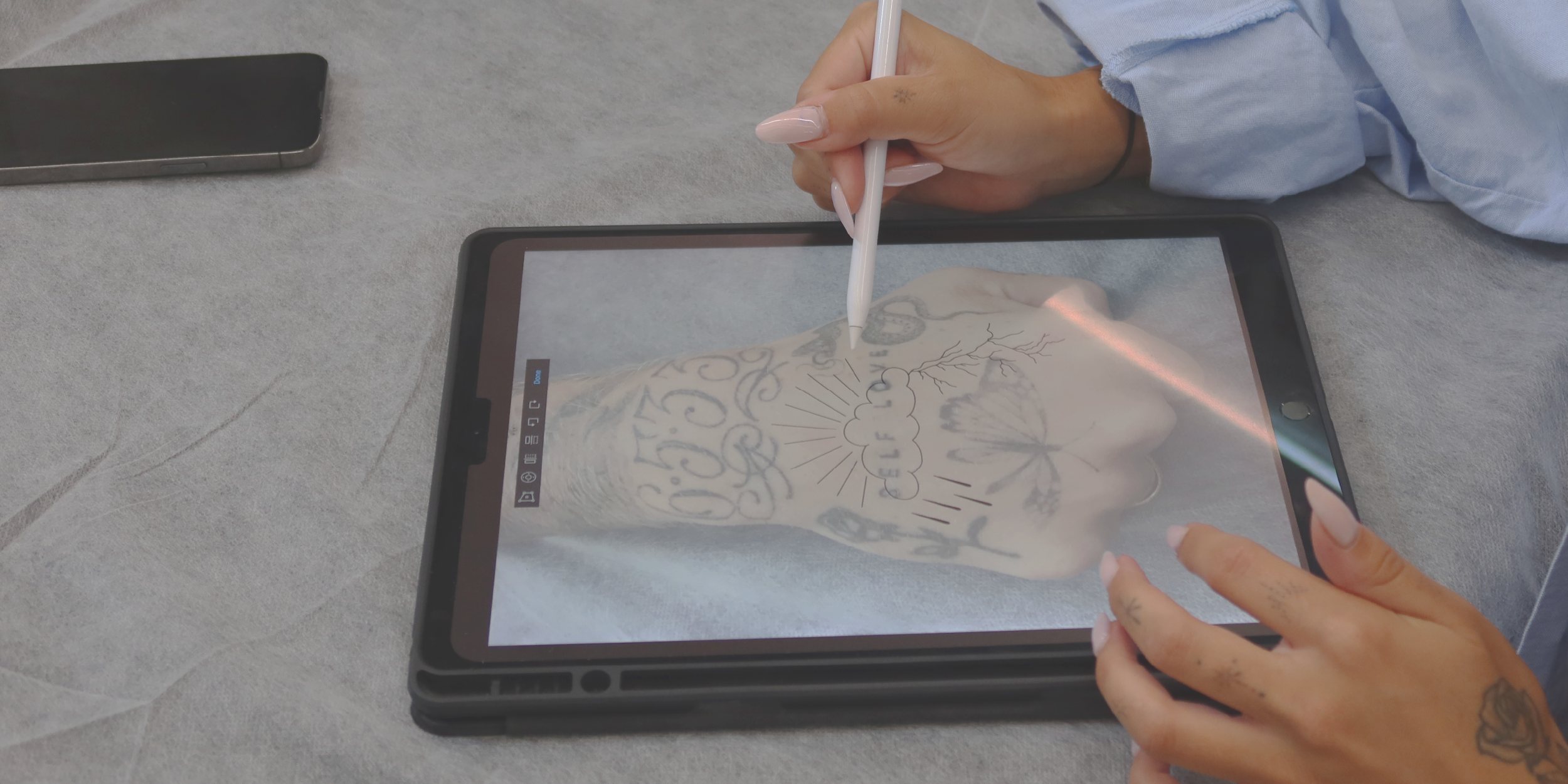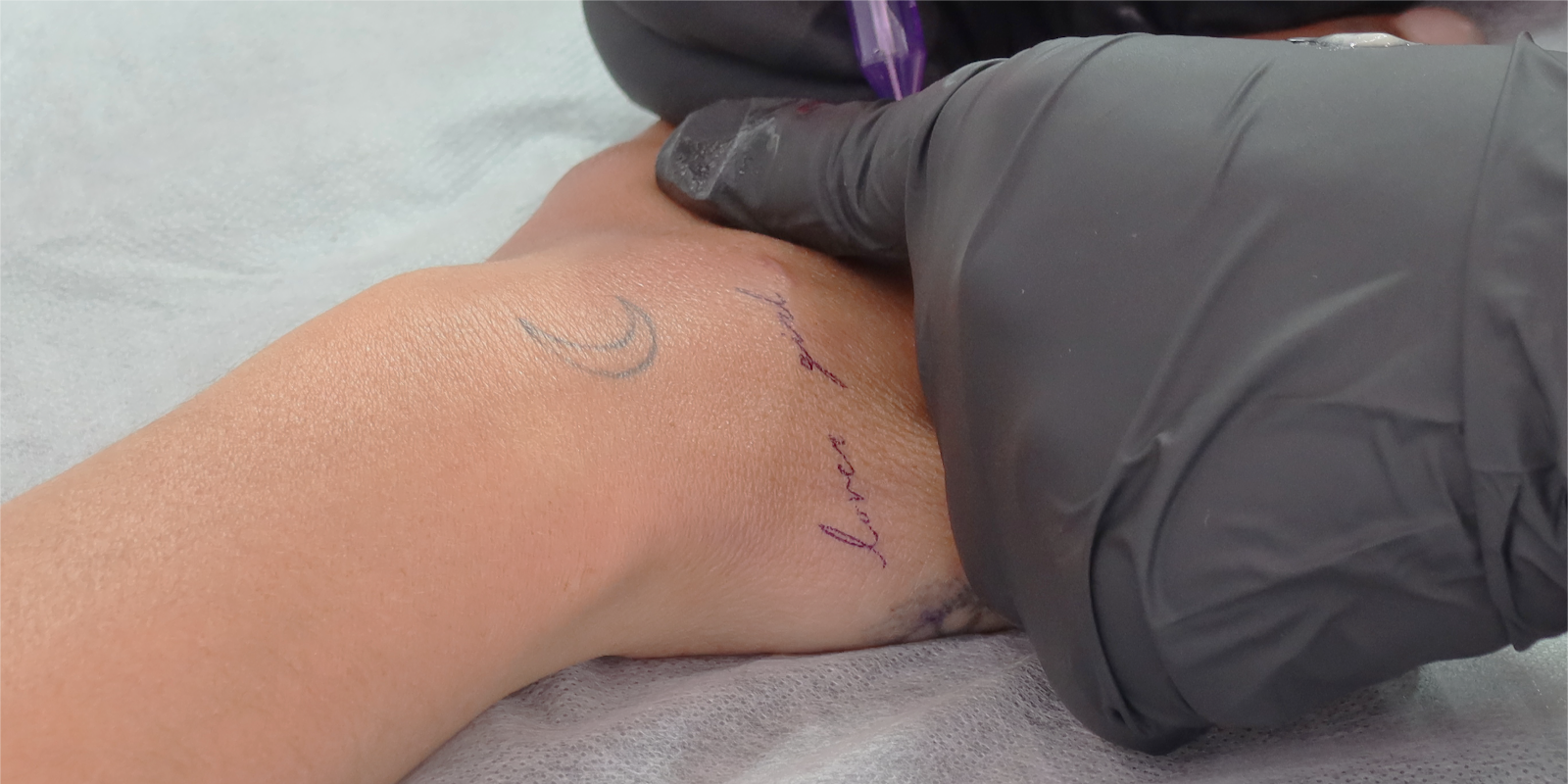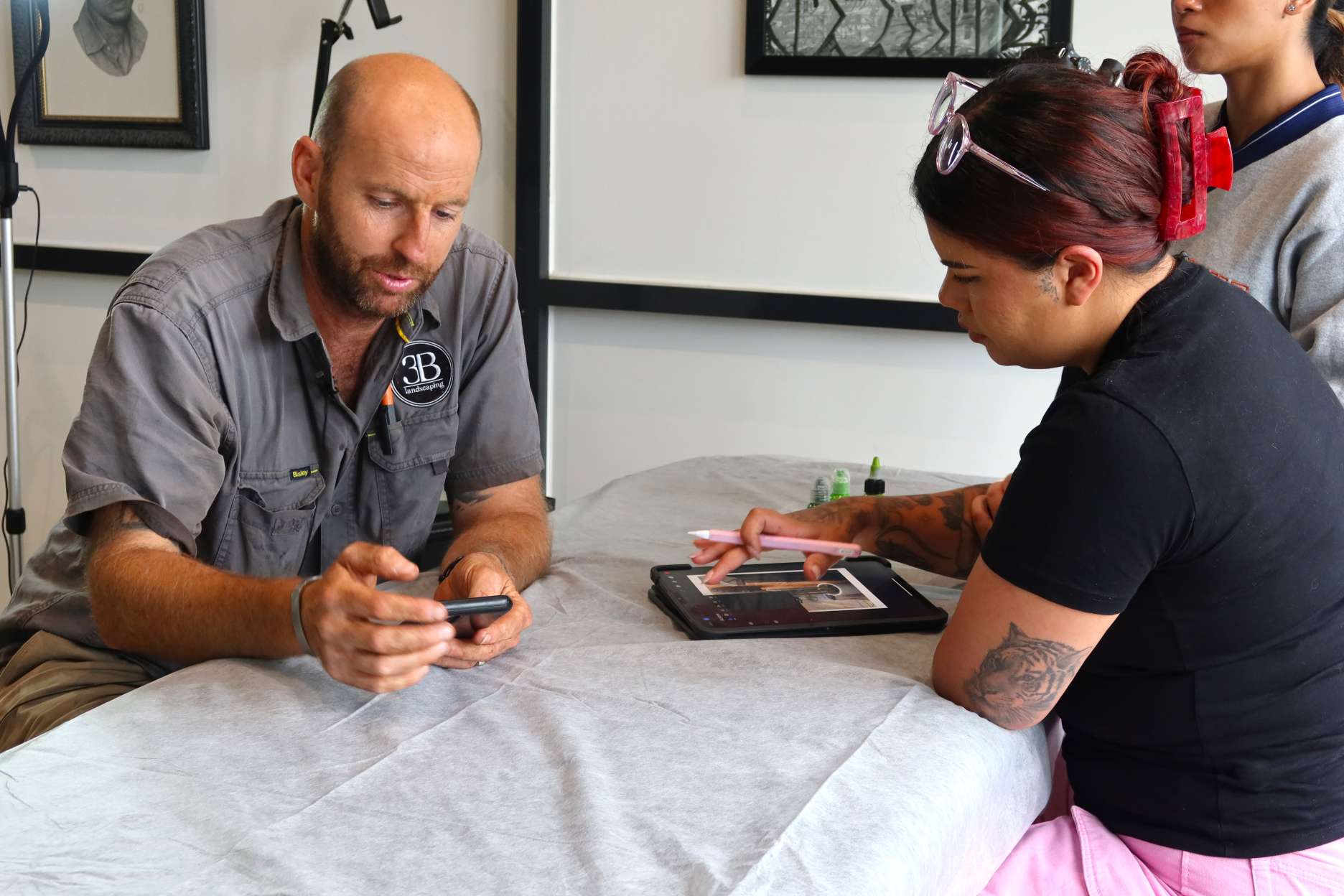Starting out as a new tattoo artist is an exciting adventure, but it’s one that requires patience, willingness to learn, and a serious commitment to your craft. As much as you might try to avoid them, mistakes are inevitable and part of the journey. We’ve compiled a list of frequent mistakes beginner tattoo artists make to help you on your journey.
MINIMAL CONSULTATION WITH THE CLIENT
A thorough initial consultation is key to ensuring you understand your client’s needs and expectations. This isn’t a process to skip through quickly – a consultation takes time and a lot of listening. If you aren’t giving your clients a comprehensive consultation, you’re likely to end up working on something that doesn’t align with their vision. Setting clear design expectations, such as placement and sizing, is vital for anyone learning how to tattoo. It ensures you capture their vision and uphold professionalism and trust, reflecting on your reputation as an artist.
Our tips:
- Talk about their vision: Listen attentively to your client and ask questions to ensure you best conceptualise their vision
- Set clear price estimates: Transparency is key. Discuss factors like design complexity, size, and placement to avoid surprises and build trust.
- Discuss expectations: Talk through the process, including session times, pain levels, and aftercare. Make sure your client knows what to expect at every stage.
INCORRECT TECHNIQUES
Poor tattooing techniques can result in a tattoo that doesn’t heal properly or line work that doesn’t hold up to the standard of professional artists. Whether it’s a shaky hand, inconsistent pressure or choosing the wrong needle for the job, these errors can lead to a final piece that doesn’t live up to your client’s expectations.
Our tips:
- Focus on consistency: Aim for steady lines and even shading. Take your time, and remember that practice makes perfect.
- Start with simple designs: Begin with simple designs that don’t test your technique too much. This gives you the chance to master your technique without feeling overwhelmed.
- Learn from others: Shadow experienced artists, ask for feedback and practice on synthetic skin or fruit to build your confidence.
TATTOO THEFT
Tattoos are a form of art, and at the end of the day, your creativity and individuality are what sets you apart as an artist. It can be easy to get swept up in the work of other artists, especially when you are just entering the industry, but it’s important to remember that copying another artist’s work without permission can lead to awkward situations and tarnish your reputation.
Our tips:
- Make it your own: Draw inspiration from others, but ensure you add your own unique touch
- Ask first: If you want to adapt someone else’s design, ask for their permission first – this will save you plenty of trouble down the track.
- Give credit where it’s due: If you’re drawing inspiration from another artist – give them a shoutout. It’s a meaningful way to show respect and build a community.
LACK OF HYGIENE
When it comes to tattooing, clean practices are non-negotiable. Poor hygiene can lead to infections, allergic reactions, or even long-term health issues. As a new artist, building trust through clean practices is essential for your career.
Our tips:
- Keep it clean: Always sterilise your equipment, disinfect surfaces, and replace gloves with fresh ones after every client.
- Single-use only: Use single-use needles, razors, and ink caps. Never reuse these items, as they pose serious health risks.
- Educate your clients: Provide clear aftercare instructions and explain why proper healing practices matter. It shows you care about the tattoo beyond the chair.
Mastering the fundamentals and avoiding common mistakes is just the beginning of your journey as an artist. If you’re serious about honing your skills our Tattoo Academy is the next best step. With resources covering everything from how to get started as a tattoo artist to selecting the best tattoo equipment for beginners, we’re here to help you kick-start your career.
Take the first step towards your career as a tattoo artist today by speaking to one of our friendly course consultants.
